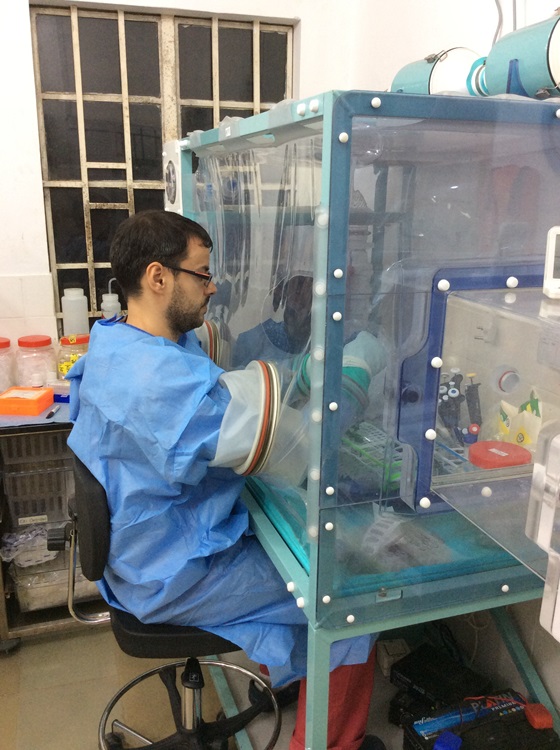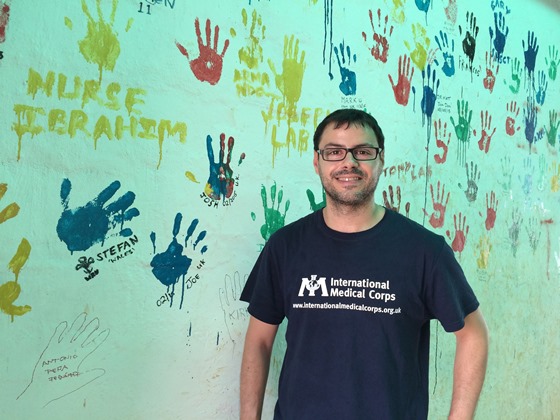A scientist who volunteered to work in Sierra Leone during the recent Ebola outbreak, has said he was “stunned” by the resilience and positivity of the local people there.
Dr Antonio Peña-Fernández had not long started working at De Montfort University Leicester (DMU) as a Lecturer in Biomedical and Medical Sciences when he flew out with Public Health England to the largely affected country in December last year.

Since the disease broke out in West Africa on December 2013, it has claimed more than 11,300 lives and Dr Peña-Fernández said he was moved to offer his skills after seeing media coverage of the crisis.
He said: “I am very attracted to researching infectious diseases. I could see the situation in Sierra Leone was horrible from TV and news reports and I wanted to go and do what I could to help.”
After flying more than 3,200 miles to the city of Makeni, he started working as a laboratory technician, mainly detecting Ebola in clinical samples from suspected patients.
RELATED NEWS
Brave nurse who helped Ebola patients faces her biggest fear yet
Nigerian student tests home-made cancer cure for doctorate
DMU picked by NHS to train future learning disability nurses
Over the course of almost four weeks he analysed blood and swabs from hundreds of suspected patients, living and dead and in semen from Ebola survivors’ volunteers.
He said: “We were testing about 40 samples a day. The labs we worked in had been set up by Public Health England and were really well equipped.
“I am very happy for the opportunity that PHE has given to me for working in one of its laboratories and what’s great is that a lot of that equipment is subsequently being donated to the local university in Makeni.
“We were not only testing for Ebola virus but also testing for other diseases, like malaria, as the country is an endemic area for this disease. We also started to train local scientists for working in the laboratory detecting these diseases.”

Before returning on December 31, Dr Peña-Fernández said Public Health England had started setting up a Legacy Lab so that locals would be equipped to fight any future outbreaks of the Ebola virus.
Although in his role he did not come into contact with patients, he said he saw many locals around the city of Makeni.
He said: “They seemed so happy with what they had, which was much less than we have in this country. Perhaps they were innocent of the scientific details of the disease but they were warm and friendly and positive – it really surprised me and changed the way I think about my life here.”
Posted on Wednesday 17 February 2016